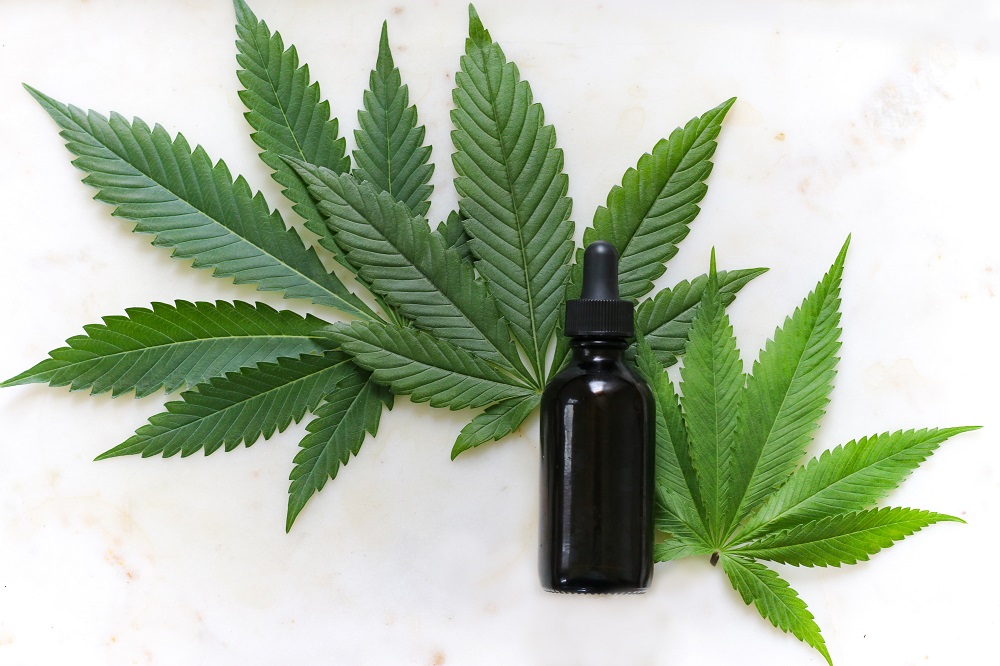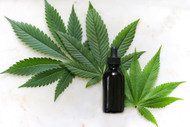Using MCT as a Carrier Oil for CBD
By on Jul 10th 2019
What is CBD?
Cannabidiol (CBD) is one of the primary active ingredients of cannabis (marijuana) and is also derived from marijuana’s cousin, hemp. Unlike THC (tetrahydrocannabinol), CBD has little-to-no intoxicating properties (it does not cause the “high” associated with marijuana use).
Like marijuana, CBD is still considered illegal on the federal level but is legal in many states, as well as Washington DC. CBD is a popular supplement associated with numerous benefits, including pain management and relief from anxiety, insomnia, and spasticity.
Given CBD’s increased popularity, its presence online and across store shelves has grown exponentially and can be found in many forms, including candy, tinctures, lotions, bath bombs, and even dog treats. When comparing CBD products, there are a few things that will differ by brand and product, including the types (full spectrum vs. broad spectrum vs. isolate) and, when relevant, different carrier oils.

What are CBD carrier oils?
Carrier oils, also known as base oils, are used to dilute essential oils and “carry” plant supplements for cosmetic and culinary applications. In the case of CBD, they help the body absorb the product better and also assist with dosing.
Cannabinoids such as CBD are first extracted from plants. When CBD is extracted, the result is some very potent molecules. For some perspective, A 20mg serving of CBD isolate is equivalent to a few grains of sand. By dissolving the CBD in oil with equal distribution, it makes accurate dosing significantly easier. Note: CBD is fat-soluble and therefore cannot be dissolved in water. This is why you need a carrier oil.
Beyond easier dosing, dissolving CBD in a carrier oil also aids in absorption. Carrier oils are a source of dietary fat; such fats help the body absorb the molecules. Otherwise, they may pass through the digestive system without any benefit to the body.
Here are some potential carrier oils for CBD:
- MCT oil
- Hemp seed oil
- Grapeseed oil
- Sunflower oil
- Avocado oil
MCT & CBD
MCT oil is a popular choice for use with CBD and is generally regarded as one of the best carrier oil options. Both coconut oil and palm oil contain high levels of MCT, and unlike the other oils with names indicative of their source, MCT gets its name from the structure of its molecules: Medium Chain Triglycerides. In the case of MCT, its size and structure matters.
Triglyceride is just another name for fat and oil molecules. The size is determined by how many carbon atoms are contained in its structure. While most fats and oils contain Long Chain Triglycerides (LCT) with 14 or more carbon atoms, MCTs contain significantly less carbon (between 16 and 12). This size difference is what helps make MCT an effective carrier oil for CBD, as well as providing other potential health benefits.
Due to its smaller molecular structure, MCT is more digested and absorbed more easily by the human body. When used as a carrier for CBD, MCT provides greater bioavailability. When cannabinoids breakdown, they are stored in fat, which means they are best administered with fat to increase absorption.
Medium Chain Triglycerides are better than oil with LCTs because they blend with water more efficiently (remember, the human body is made up of large amounts of water). The digestive tract can send MCTs to the bloodstream without the aid of chylomicrons; when substances like CBD can go to your bloodstream quickly without needing to be digested first, you will feel the effects far sooner.
Other Benefits of MCT
MCT oil is virtually tasteless, which is why it is a popular additive in both tinctures and ingestible, such as food and beverages. CBD with MCT can also be taken sublingually. MCT is also a popular supplement additive because it has a long shelf life and does not need refrigeration.
Beyond its use as a carrier oil for CBD, MCT oil is also a popular food aid, emollient, and diluent for the beverage, food, personal care, and even medical industries. MCT oil is added to “Bulletproof Coffee” and is often utilized by people following a keto diet for its high-fat content and as a source of energy.
Sources:
https://www.health.harvard.edu/blog/cannabidiol-cbd-what-we-know-and-what-we-dont-2018082414476
https://www.foriawellness.com/blogs/learn/mct-oil-keto-cbd-coconut-oil-bulletproof






